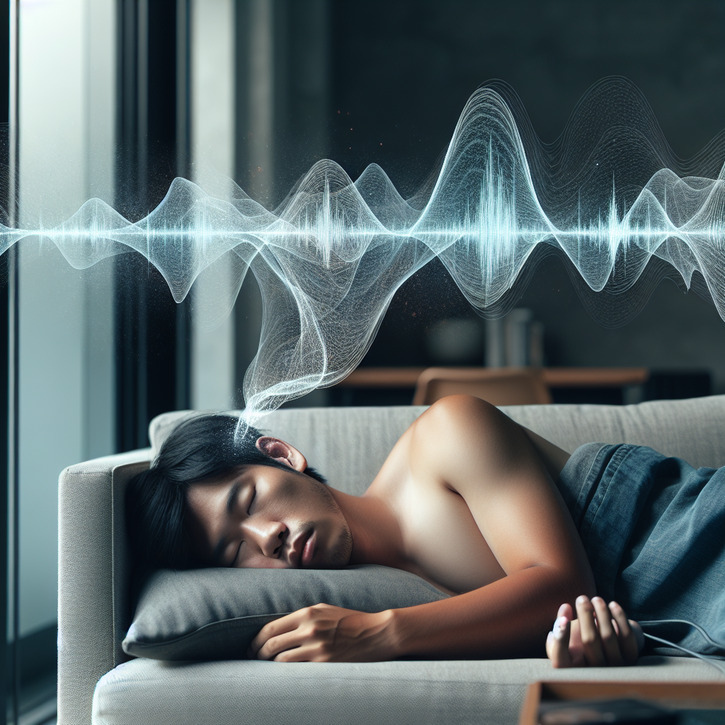How Poor Sleep Worsens Hearing Problems and How to Fix It with Sleep Restore

Introduction: How Bad Sleep Can Impact Your Hearing
Let’s face it—life today is a whirlwind of commitments and deadlines, and catching truly refreshing sleep can sometimes seem impossible. But here’s something you might not have considered: poor sleep might be messing with your hearing, too. Recent studies are pointing to some pretty interesting links between not getting enough quality rest and experiencing hearing troubles. Today, we’re diving into the concept of “sleep restore,” a technique that's gaining traction not just for boosting sleep quality, but also for potentially improving how well your ears work. Whether you're driven by work, enjoying your retirement, or simply looking to up your wellness game, understanding how sleep and hearing are connected could be the first step to reclaiming your vitality. Stick with us as we explore how sleep restore could lend a helping hand to your hearing, backed by science and practical tips for making better sleep a part of your routine.
It may come as a surprise, but the havoc wreaked by a sleep deficit doesn’t stop at your energy levels—it can also target the sensitive parts of your body that help you hear. Lack of sleep floods your body with stress hormones, and this can throw a wrench in the works of your nervous system, including those intricate sound-processing pathways. Instead of dwelling on the risks, though, we’re here to share some actionable insights. This article will walk you through how optimizing your sleep habits through sleep restore might just be the ticket to improved hearing. We’ll explain some of the science behind it, sprinkle in some real-life success stories, and offer tips to help you weave these techniques into your everyday life.
How Sleep Restore Can Boost Your Hearing Health
Sleep restore is emerging as a game-changer if you're looking to upgrade your sleep and overall well-being—even your hearing could reap the rewards. The concept is straightforward yet powerful: by getting your sleep cycle back on track, you’re giving your nervous system a chance to unwind, repair, and function at its peak. When you sleep well, your body balances out hormones, dials down chronic inflammation, and keeps your brain and hearing centers in tip-top shape. Over time, sleep restore could play a key role in bolstering these processes, paving the way for healthier auditory pathways.
Research suggests that deep, restorative sleep is crucial for strengthening the brain’s neural connections, which might explain why better sleep often goes hand in hand with improved hearing. During REM and non-REM sleep, your body actually repairs neural pathways, eases stress, and gears up your brain for a new day. Experts in sleep medicine even believe that sleep restore techniques can “reset” these vital processes, potentially curbing some of the hearing issues brought on by years of poor sleep. In a nutshell, sleep restore is all about maximizing both the length and quality of your deep sleep, offering benefits that reach far beyond just feeling well-rested.
How Poor Sleep Can Do a Number on Your Hearing
It turns out that chronic sleep loss doesn’t just leave you feeling groggy—it can also take a toll on your hearing. When you’re short on quality sleep, your body remains in a constant state of stress with high levels of stress hormones, inflammation, and a slower metabolism. These factors can contribute to disruptions in the delicate inner ear and auditory pathways. Think of it as a domino effect: lack of sleep ramps up overall body stress, which then hampers the efficiency of the nerve signals crucial for hearing.
Many people have noticed that after several nights of tossing and turning, sounds seem a little fuzzier or background noise becomes overwhelming. You might find yourself missing subtle details in conversation or noticing that a persistent ringing in the ears seems to worsen. These everyday observations align with scientific findings that suggest sleep loss can even mess with the tiny blood vessels in your ears, critical for maintaining good hearing health. The takeaway? The cumulative stress and inflammation from poor sleep may set the stage for long-term hearing problems, making it essential to look into ways to boost your sleep quality.
Discovering Sleep Restore: How It Works and What It Offers
At its core, sleep restore taps into your body’s natural knack for repair during sleep. It’s all about syncing your sleep cycles with your circadian rhythms to make sure that every phase of sleep counts. This neat process helps clear out toxins hanging around in your brain and nervous system, calms your mood, reduces pesky inflammation, and promotes overall regeneration at the cellular level.
The perks of sleep restore extend way beyond just a good night’s sleep. Folks who make sleep restore a part of their routine often report sharper thinking, quicker recovery from physical strain, and even improved sensory perception, including better hearing. By creating an environment where your body can mend its auditory circuits, sleep restore may reduce inflammation around the inner ear and keep stress-related damage at bay. Not to mention, better sleep helps keep stress hormones in check—something that’s crucial for preventing hearing fatigue. In essence, sleep restore acts as a bridge between healthy sleep habits and advanced strategies for preserving your hearing in the long haul.
Imagine being able to enjoy every nuance of your favorite song or having trouble-free conversations, simply because you finally gave your body the deep, restorative sleep it craved. As we peel back the layers of sleep restore, you’ll see how your nervous system, especially your hearing apparatus, gets a refreshing reboot.
Practical Sleep Restore Strategies for Hearing Health
If you’re facing challenges with both sleep and hearing, integrating sleep restore techniques into your daily life could be a real game changer. The first thing to remember is that quality sleep isn’t just about clocking in a set number of hours—it’s about the quality of those hours. Small adjustments like sticking to a consistent bedtime, setting up a zen-like sleep environment, and cutting back on screen time an hour before bed can make a world of difference. Over time, these habits work together to normalize your sleep cycle and kick your body’s natural repair processes into high gear.
For those already undergoing audiological treatments or using hearing aids, pairing these medical approaches with solid sleep habits might amplify the benefits, leading to clearer hearing. And don’t overlook the power of stress management—a bit of mindfulness or a yoga session can really help improve your overall sleep quality. Adjustments like eating balanced meals, dialing down late-day caffeine, and creating a calming pre-bed ritual all play their part. These steps not only support sleep restore but also directly nurture your auditory system.
Some folks even experiment with tech to make sleep restore easier—think sleep trackers, white noise machines, or even devices that simulate the soothing sounds of nature. The key here is to be consistent. By consistently embracing sleep restore strategies, you set up the stage for better sleep, and in turn, a healthier, more resilient hearing system.
Creating a Sleep Restore Routine to Battle Hearing Problems
Building a sleep restore routine is all about aligning your daily habits with your body’s natural rhythm. A great starting point is to set a fixed bedtime and wake-up time—even on weekends. This simple step can do wonders for regulating your internal clock. Next, craft a sleep-friendly space by keeping your bedroom cool, dark, and quiet. Consider blackout curtains, a white noise machine, or even an aromatherapy diffuser with calming scents like lavender. Small tweaks like these can snowball into big improvements in your sleep quality, and then, in turn, better your hearing health.
Before bed, blend in some relaxation techniques to help ease the transition from the bustle of your day into the calm needed for restorative sleep. Whether it's reading a book, meditating for a few minutes, or doing some gentle stretches, indulging in these activities helps prime your body for a night of genuine recovery. You might even start keeping a sleep diary to track your patterns and spot any disruptions. Over time, this will help you fine-tune your routine, ensuring each night edges you closer to that ideal, healing sleep that supports both your overall wellness and your auditory health.
Real-Life Success Stories: How Sleep Restore Has Made a Difference
There’s no shortage of stories from people who’ve seen noticeable changes after embracing sleep restore. Take, for example, someone who struggled with constant tinnitus—a persistent, nagging ringing in the ears. After committing to a regular sleep restore routine, they began to notice that the ringing subsided, sounds became clearer, and social gatherings were no longer overwhelming with background noise. These personal journeys, backed by scientific insights, shine a light on the real potential of sleep restore in addressing hearing issues.
Experts in sleep medicine and audiology are also catching on. Dr. Elizabeth Monroe, a leading sleep specialist, puts it this way: “Quality sleep forms the bedrock of all our well-being. When we restore our natural sleep patterns, we unlock the body’s power to repair both the brain and our auditory systems.” With growing clinical evidence and heartening testimonials, sleep restore is proving to be more than a passing trend—it’s becoming an integral part of how we approach long-term hearing health. If you’ve been battling hearing disturbances paired with lackluster sleep, exploring sleep restore techniques might just be the breakthrough you need.
As more research unfolds and more positive experiences come to light, integrating sleep restore into everyday routines seems set to become a key strategy for ensuring that sleep, sound, and overall well-being go hand in hand.






